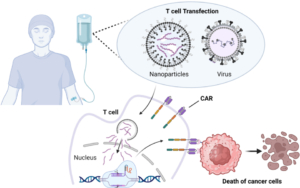
Novo Nordisk enters haemophilia gene therapy field
Licencing bluebird bios Inc know-how and technology in one-time gene therapies, Novo Nordisk A/S tries to get a foothold in the emerging haemophilia A gene therapy market.
Changes in the treatment standard of haemophilia A, such as Roches 2017 launch of Hemlibra, have put Novo Nordisks revenues (in the US$15.8bn market) under pressure: in 2018, the Danish company lost about 14% in sales of its factor VIII replacement therapy NovoSeven because Hemlibra disrupted the market with a once monthly dosing frequency versus every four days at best. As the first one-time gene therapy treatments of BioMarin Pharmaceuticals is expected to be submitted for FDA market authorisation this year, and further gene therapies of Sangamo Therapeutics Inc, and Roches US$4.3bn acquisition target Spark Therapeutics Inc are in clinical testing, Novo Nordisk has entered a gene editing deal with bluebird bio, which will launch its EU-approved gene therapy product Zynteglo in Q4/2019.
Through the deal, which does not name further targeted conditions, Novo Nordisk initially gets access to bluebird bios MegaTal gene editing technology, which can be delivered by viral and non-viral vectors, for initially three years. This gene editing technology originally was developed by Precision Genome Engineering, which bluebird bio acquired in 2014. The companies will use it to correct mutations causing deficiencies in clotting Factor VIII.
According to analysts, its a late start for Novo into the gene therapy field. However, long-term durability of gene therapies might be a strong argument when it comes to outcome-based pricing and reimbursement. And bluebird bios Zynteglo has a proven track-record in long-term durability and might have an advantage over first-generation haemophilia A gene therapy products.
Financial details were not disclosed.


 By Vaccinationist - PubChem, Wikipedia
By Vaccinationist - PubChem, Wikipedia robin_24, Wikipedia
robin_24, Wikipedia